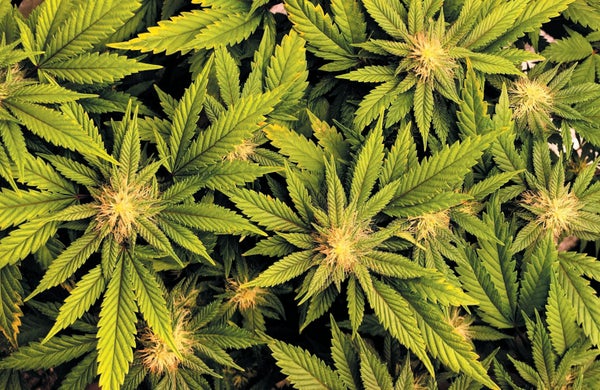Is Marijuana Bad for Health? Here’s What We Know So Far

Is Marijuana Bad for Health? Here’s What We Know So Far
Marijuana’s health impacts—good and bad—are coming into focus

Cappi Thompson/Getty Images
With decades of legal and social opprobrium fading fast, marijuana has become an extremely popular commercial product with more than 48 million users across the U.S. Health concerns, once exaggerated, now often seem to be downplayed or overlooked. For example, pregnant patients “often tell me they had no idea there’s any risk,” says University of Utah obstetrician Torri Metz, lead author of a recent paper in the Journal of the American Medical Association on cannabis and adverse pregnancy outcomes.
Fortunately, legal reforms are also gradually making it easier to study marijuana’s health effects by giving U.S. scientists more access to the drug and a wider population of users to study. Although much research remains in “early stages,” the number of studies has finally been increasing, says Tiffany Sanchez, an environmental health scientist at Columbia University. As new results accumulate, they offer a long-overdue update on what science really knows about the drug.
The Bad
On supporting science journalism
If you’re enjoying this article, consider supporting our award-winning journalism by subscribing. By purchasing a subscription you are helping to ensure the future of impactful stories about the discoveries and ideas shaping our world today.
In addition to minor side effects that many users joke about—such as short-term memory loss—recent studies have linked marijuana to adverse health outcomes involving the lungs, heart, brain and gonads. For example, heavy marijuana consumption seems to increase the risk of clogged arteries and heart failure, and it may impact male fertility. Smoking weed likewise can lead to chronic bronchitis and other respiratory ailments (although, unlike tobacco, it hasn’t been definitively tied to lung cancer). And cannabis plants hyperaccumulate metal pollutants, such as lead, which Sanchez found can enter users’ bloodstreams.
Developing adolescent brains, particularly those predisposed to mental illness, may be most at risk from overconsumption. Although psychiatric effects are hotly debated, studies suggest that heavy weed use exacerbates—or may trigger—schizophrenia, psychosis and depression in youths and that it affects behavior and academic performance. “From a safety viewpoint, young people should definitely stay away from it,” says University of Ottawa psychiatrist Marco Solmi, lead author of a recent review of cannabis and health in the British Medical Journal.
24 states have legalized recreational marijuana, with 38 allowing medical use
Moreover, the drug can cross over to fetuses during pregnancy. Several studies have linked it to low birth weights, and researchers suspect it raises the likelihood of neonatal intensive care unit admissions and stillbirths. Some cannabis dispensaries have advertised their products as a cure for morning sickness, but Metz emphasizes that safer alternatives exist.
The Good
Of course, many adults use marijuana responsibly for pleasure and relaxation. Unlike with, say, opioids, there’s effectively zero risk of life-threatening overdose. Plus, “people get addicted with tobacco way faster,” says Columbia University epidemiologist Silvia Martins, who studies substance use and related laws.
Cannabis, and its derivatives, also may help alleviate pain—although some researchers contend that it performs little better than a placebo. It may also decrease chemotherapy-induced nausea, calm epileptic seizures, ease the symptoms of multiple sclerosis and serve as a sleep aid.
Recent studies have hinted that the drug might slightly reduce opioid dependency rates, although this, too, is disputed. There’s some evidence that weed users tend to be more empathetic, and researchers found that elderly mice get a mental boost from the drug. Still, experts caution against self-medicating: “You should ask your doctor,” Solmi says.
The Weird
Some of the recent research into marijuana is more lighthearted. One study, for instance, found that, just like people, nematode worms dosed with cannabis get the munchies.





